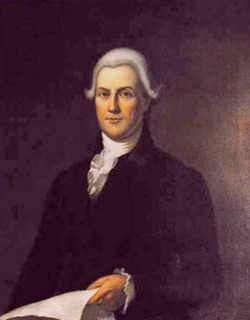“The purport was, Boston was in action…”
One important element of the “Powder Alarm” of 1774 was that although the British army operation ended peacefully on the morning of 1 September, reports of what happened kept spreading for days.
And as those reports spread, they grew more dire.
Rev. Dr. Ezra Stiles recorded from an eyewitness that in Shrewsbury in the early morning hours of 2 September the rumor was “six men killed.”
Exaggerations like that brought thousands of Middlesex County militiamen into Cambridge that day. That event produced fear about more British military action, which apparently produced more rumors.
At noon on 3 September, Israel Putnam tried to rouse the militia around Pomfret, Connecticut, because of and with this news:
Of course, none of that happened. But it took a while for the real news to catch up.
TOMORROW: How the news reached the Continental Congress.
And as those reports spread, they grew more dire.
Rev. Dr. Ezra Stiles recorded from an eyewitness that in Shrewsbury in the early morning hours of 2 September the rumor was “six men killed.”
Exaggerations like that brought thousands of Middlesex County militiamen into Cambridge that day. That event produced fear about more British military action, which apparently produced more rumors.
At noon on 3 September, Israel Putnam tried to rouse the militia around Pomfret, Connecticut, because of and with this news:
I have this minute had an express from Boston that the fight between Boston and Regulars [began] last night at sunset, the cannon began to and continued playing all night, and they beg for helpEarly on 4 September, Titus Hosmer (shown above) in Middletown, Connecticut, was woken by the sheriff, who had received a letter from Putnam. Hosmer wrote:
The purport was, Boston was in action by the “troops sending out to seize all the powder in the country, especially at Framingham [sic] about 20 miles from Boston; which when discovered occasion’d the country people to collect and offer to rescue the powder [i.e., grab it back]. Six of the country people were shot dead at the very time, and many wounded—an Artillery planted at the Neck—the Ships were heard to fire all night of a Friday.By noon that day, Hosmer heard a less drastic report via Hartford:
[William] Brattle at Cambridge, a high tory, had petitioned [Gen. Thomas] Gage for troops to protect him at his house, which Gage granted; a mob gathered and demand of Brattle to renounce his toryism or whatever you may term it; but after a short parley the troop fired, kill’d some right out, a large numr. wounded. No news from the town itself.On Sunday, 4 September, the worst rumors reached Longmeadow, Massachusetts. The Rev. Stephen Williams heard that the Royal Navy was involved:
the Ships in ye Harbour—of Boston, & ye Army on ye Land Side were allso fireing upon ye Town so yt. it was like ye Town was Demolishd.In Milford, Connecticut, young Joseph Plumb Martin heard the talk at church that Sunday afternoon and went to bed fearing redcoats would attack his family’s home before morning.
Of course, none of that happened. But it took a while for the real news to catch up.
TOMORROW: How the news reached the Continental Congress.


No comments:
Post a Comment